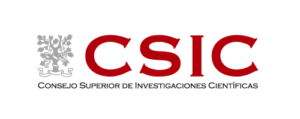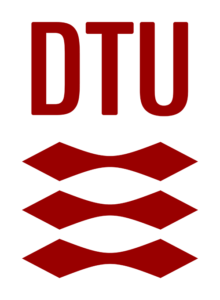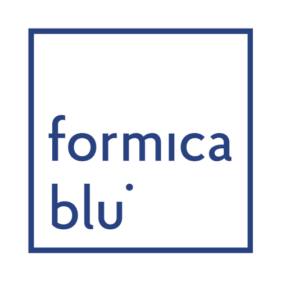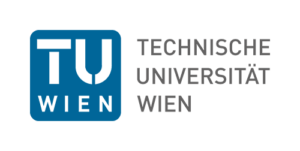About us
AURES II (AUctions for Renewable Energy SupportJust like administratively set support, auction-allocated su... II) aims at ensuring the effective implementation of auctions for Renewable Energy Sources (RES) in EU Member States.
Building on the insights of the recently finalized AURES project, AURES II investigates auctionAn auction is a market mechanism with the aims of allocating... design options in more detail to determine their policy performance depending on different policy objectives, and give recommendations on their use.
In AURES II a multi-methodological approach is applied, including literature review, theoretical analysis, case studies, surveys, interviews, and empirical and quantitative methods such as econometric analysis and model simulations.
This approach is accompanied by a strong involvement of relevant stakeholders, including policy makers and industry representatives. The active dialogue AURES II aims at setting allows stakeholder to learn from best practice and facilitates capacity building across borders in Europe.
Extending the successful work of AURES, new topics that will be investigated include the implementation of technology-specific versus technology-neutral supportJust like administratively set support, auction-allocated su... schemes, exemptions from competitive supportJust like administratively set support, auction-allocated su... allocation for small scale installations, a compulsory cross-border opening of supportJust like administratively set support, auction-allocated su..., special provisions for RES community projects and the effects of auctions on financing conditions for renewables.
In addition, to fill the current gap of a structured overview, AURES II is committed to the developement of a comprehensive online database of auctionAn auction is a market mechanism with the aims of allocating... rounds in the EU, where results, details on auctionAn auction is a market mechanism with the aims of allocating... design, and financing conditions will be made freely accessible.
Objectives
The overarching goal of AURES II is to supportJust like administratively set support, auction-allocated su... policymakers in European Member States and Energy Community countries in improving the effectiveness and cost-efficiency of financial supportJust like administratively set support, auction-allocated su... schemes for RES.
This contributes to maintaining Europe’s leadership in renewables and helps keeping supportJust like administratively set support, auction-allocated su... expenditures at a level that is fair to consumers. AURES II will evaluate and assess auctions as competitive market measures in RES supportJust like administratively set support, auction-allocated su... schemes, and will provide updated and specific guidance for their implementation now and under the new 2020-30 target framework.
AURES
Recently finalized, AURES was a European research project on auctionAn auction is a market mechanism with the aims of allocating... designs for renewable energy supportJust like administratively set support, auction-allocated su.... It addressed the issue of improving supportJust like administratively set support, auction-allocated su... policies for electricity from renewable energy sources through competitive market measures. As for AURES II, the general objective of the project was to promote an effective use and efficient implementation of auctions for renewable energy supportJust like administratively set support, auction-allocated su... in the European Union Member States, especially regarding their cost-efficiency. AURES has provided comprehensive analyses on RES auctions with numerous capacity-building activities for policymakers at national and international level, the energy industry and other stakeholders. Building from this successful experience, AURES II seeks to continue and extend the work of AURES.
Workflow

The objective of WP1 is to manage the project, in terms of internal coordination, administration, and communication. The work package will ensure high quality deliverables of the project in due time, as well as the smooth functioning of the consortium’s work.
There are two tasks within this WP:
- Coordination and administration of the project
- Communication within the consortium, internal meeting, and progress reports
Overall, the aim of WP1 is to ensure a successful development of the project.
WP lead beneficiary: Fraunhofer
WP duration: from month 1 to 36 (entire project)
The aim of this WP is to analyse recently realised auctionAn auction is a market mechanism with the aims of allocating... schemes worldwide and to explore future implementation possibilities for auctions in Europe based on specific case studies. Case cooperation will be undertaken with policymakers in some Member States that have ongoing auctionAn auction is a market mechanism with the aims of allocating... implementation processes.
This WP will analyse the practical experience with RES auctions in a dozen countries that have applied auctions, as well as in countries that are in the planning phase. To do so, an extensive analysis of the scientific literature and reports on auctions will be accompanied by interviews with experts. The data collected will also serve for the construction of the auctionAn auction is a market mechanism with the aims of allocating... database of WP3. Furthermore, project meetings and workshops will be organized to establish a close interaction with policy makers.
There are three tasks in this WP:
- Analysis of past and ongoing auctions and lessons learnt
- Assessment of implementation plans for future auctions
- Specific cases in cooperation with policymakers
This WP is closely linked to WP3 and WP5, in that it is expected that the three of them will benefit from a mutual exchange of information.
WP lead beneficiary: REKK
WP duration: from month 1 to 34
This WP’s main purpose is to build the first comprehensive publicly available database on conducted auctions in the EU, comprising the results in terms of prices and volumes, as well as the implemented design elements and realisation rates.
The data collected and updated in this WP will provide an holistic overview of existing and planned auctions, as well as new quantitative insights on how design elements influence auctionAn auction is a market mechanism with the aims of allocating... performance. Also, policymaker recommendations will be deducted and timely analyses on selected auctions will be provided to keep stakeholders up to date on new developments.
WP3 comprises three tasks:
- AuctionAn auction is a market mechanism with the aims of allocating... database
- Empirical analysis of auctionAn auction is a market mechanism with the aims of allocating... results
- Ad-hoc policy briefings
This WP is tightly linked to WP2; the database will provide an overview regarding auctionAn auction is a market mechanism with the aims of allocating... results and design elements for all other Wps.
WP lead beneficiary: Fraunhofer
WP duration: from month 1 to 36 (entire project)
This WP has two objectives: Identify the impacts of auctions and design elements of auctions on the RES sector supply chain (market structure and actor diversity), and analyse their impacts on technological innovation. Implications for the choice of auctionAn auction is a market mechanism with the aims of allocating... design elements will be derived based on the analysis performed in this WP.
Two complementary methods will be used: theoretical analysis drawing on industrial economics and innovation economics as well as empirical analysis through case studies.
The tasks planned for WP4 are:
- Auctions and the value chains of renewable energy technologies: overview and potential impacts
- Empirical analysis of the impact of auctions on the supply chain
- Impact of auctions on technological innovation
WP4 will use input on the design elements of auctions from WP2, and will provide input on the implications of financing conditions for different technologies and actors in WP5, and to the policy recommendations in WP9.
WP lead beneficiary: CSIC
WP duration: from month 6 to 26
The objective of this WP is to examine how the design and implementation of auctions impact the cost of capital of RES projects. The focus is on financing with the aim to provide policymakers and industry stakeholders alike with a better understanding and an indicator on how particular auctionAn auction is a market mechanism with the aims of allocating... design elements are changing the financing conditions for renewable energy projects in terms of their risk structure.
This work package will identify auctionAn auction is a market mechanism with the aims of allocating... design best practices compatible with financing and recommend roll out actions to mitigate risks and increase bidders’ participation.
There are three tasks in WP5:
- Identification of auctionAn auction is a market mechanism with the aims of allocating... design elements affecting financing
- Impact on stakeholders and risk assessment
- AuctionAn auction is a market mechanism with the aims of allocating... design compatible with financing
Results of this WP will be included in the auctionAn auction is a market mechanism with the aims of allocating... database of WP3 and will be used for the Modelling process of WP8.
WP lead beneficiary: DTU
WP duration: from month 1 to 31
The aim of this WP is to assist Member States and the European Commission with the set-up of cross-border RES auctions, providing deep analysis of the relevant design options and their economic effects, as well as practical scientific guidance for specific cooperation cases.
The WP will analyse and explain fundamental design options and practical issue to consider in cross-border auctions. These design options will then be illustrated and discussed for practical cooperation cases involving Member State representatives and other interested stakeholders. Furthermore, the effects of cross-border auctions will be described based on auctionAn auction is a market mechanism with the aims of allocating... theory and quantitative modelling. The findings of the analysis will be synthesised in a guidance document for Member States planning to introduce cross-border auctions.
The five tasks planned in WP6 are:
- Design options for cross-border auctions
- Auction-theoretical aspects of cross-border auctions
- Country-specific case studies involving stakeholders
- European auctions
- Guidance on cross-border auctionAn auction is a market mechanism with the aims of allocating... design
WP6 and the modelling undertaken in WP8 are tightly related.
WP lead beneficiary: Navigant
WP duration: from month 1 to 22
This work package provides analyses and policy recommendations both on the design of multi-technology auctions as well as on the necessity and design of future auctions under different electricity system and market scenarios.
This WP will analyse how a design aimed at technology openness affects auctionAn auction is a market mechanism with the aims of allocating... results. It will also consider how the framework conditions determining renewables’ remuneration streams may change until 2030, whether auctions will still be necessary under these conditions, and if yes, how they should be designed. The findings will be summarised in two recommendation memos for policymakers.
The tasks in WP7 are the following:
- Technology-basket and technology-neutral auctions
- Beyond auctions? Scenario analysis of renewables in a changing electricity system
- Recommendations on Post-Subsidy world
The auctionAn auction is a market mechanism with the aims of allocating... database of WP3 will supply information relevant to the first task of WP7; in turn, the scenarios drawn in this task are relevant for the quantitative modelling of WP8.
WP lead beneficiary: Fraunhofer / UNEXE
WP duration: from month 1 to 32
The aim of this WP is to facilitate the topical analyses undertaken in other WPs with in-depth model-based quantitative assessments. A set of specialised models is used, with complementary strengths and focal points, tailored to the specific research and policy questions in focus. WP6 will also produce targeted policy briefs for stakeholders and a comprehensive background report.
Grouping all modelling works within this WP allows to make use of a common platform for approaches and key assumptions and to inform transparently on methods and outcomes.
There are six tasks in WP6:
- Quantifying biases in technology-neutral auctionAn auction is a market mechanism with the aims of allocating...
- Modelling of cross-border auctions
- Modelling of European auctions
- Model-based assessment of long-term trends in a changing electricity system
- Model-based assessment of financing aspects in auctions
- Modelling related to the monitoring of auctionAn auction is a market mechanism with the aims of allocating... implementation
Modelling performed in the course of this WP will complement analytical and conceptual works undertaken in the course of WP2, WP5, WP6 and WP7.
WP lead beneficiary: TU Wien
WP duration: from month 3 to 32
This WP will consolidate all results, ensure a common conclusion, and its dissemination to policymakers, industry representatives and experts. It will add a new aspect to the analysis by embedding the results of the project into a larger context.
There are two tasks in WP9:
- Embedding the results in a larger context
- Consolidation of all results
This is a final WP, in which recommendations and conclusions will be derived from the whole project (Wps 2 to 8).
WP lead beneficiary: Fraunhofer
WP duration: from month 31 to 35
The objectives of WP10 are to (i) disseminate objectives, methods, tools and results of the project at local, national and European level among different stakeholders, including policymakers, industries and the academic community; and (ii) to foster communication and knowledge sharing among policymakers and market participants, with the aim of creating a knowledge exchange platform.
The planned tasks are:
- Communication and dissemination strategy
- Project identity
- Communication activities
- Dissemination activities
WP lead beneficiary: formicablu
WP duration: from month 1 to 36 (entire project)
Partners
The consortium consists of eleven renowned public institutions and private firms (seven of which have cooperated in AURES) representing nine European countries and combining some of the leading energy policy experts in Europe, with an impressive track record of successful research as well as coordination and supportJust like administratively set support, auction-allocated su... projects and the analysis and design of renewable energy auctions.
Click on the buttons below for a profile of the different project partners.











